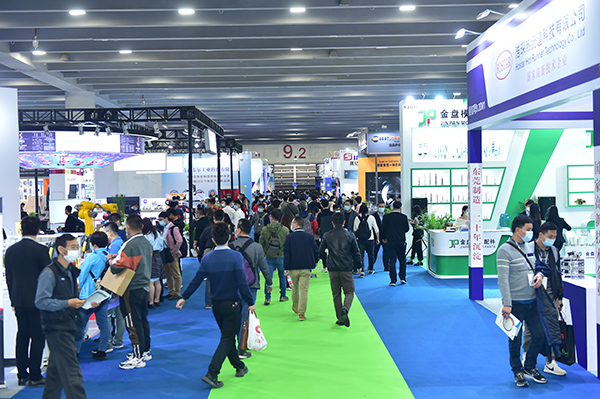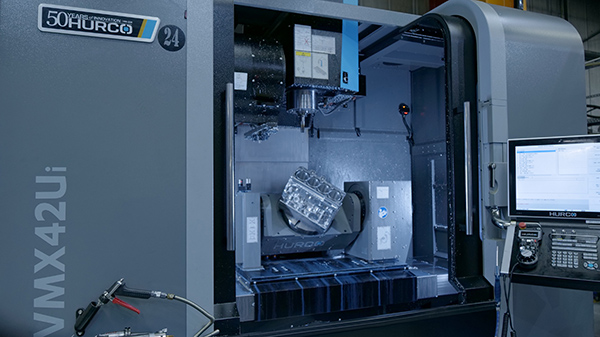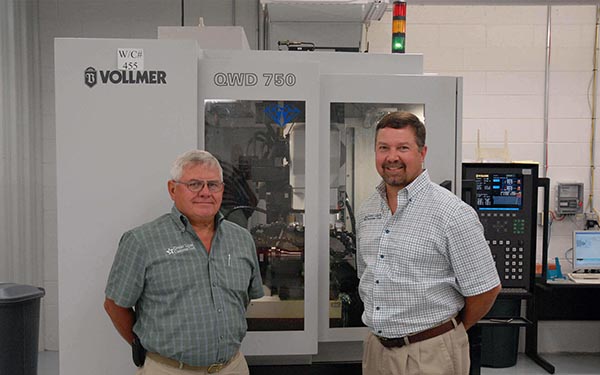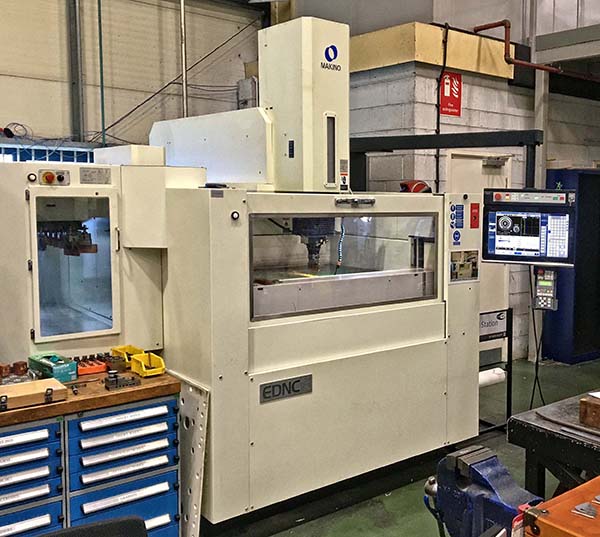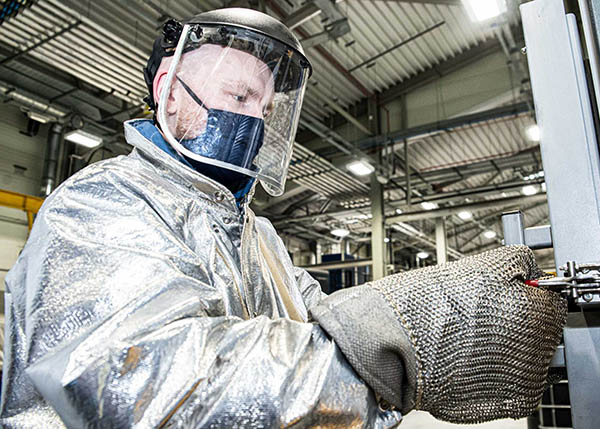
As an engineering solutions company, A&M EDM is always striving to enhance its operations and capabilities to maximise its service to clients in the aerospace, motorsport, automotive, marine, medical, rail, defence and general subcontract sectors. To achieve this, the company has invested in technology that extends from three, four and five-axis machining centres, EDM wire and spark erosion, and laser welding, through to a temperature-controlled metrology department. When A&M EDM was not getting the best from its machines and cutting tools, the company worked with MSC Industrial Supply to instigate a change of cutting fluid supply. The result was a relationship with the cutting fluid experts at Rocol.
Playing a proud role in the Ventilator Challenge and having more than 57 CNC machines on the shop floor, as well as a host of accreditations and accolades, the Smethwick-based manufacturer utilises MSC to deliver best practice engineering support. Frequent onsite visits proactively identify ways to help A&M EDM optimise its processes. When it came to improving the performance of its metalworking fluids while maintaining high-quality machining, MSC identified Rocol as the perfect partner to collaborate with A&M EDM.
Like many subcontract manufacturers, A&M EDM machines a variety of materials that include stainless steel, mild steel, aluminium, Inconel, titanium and exotics with a variety of production demands from bespoke one-offs and short runs through to longer run batches.
This variety of materials poses a challenge for any cutting fluid supplier, but Rocol recommended its Ultracut Evo 255 metalworking coolant, an extreme pressure (EP) soluble oil-water mix cutting fluid. Rocol and MSC suggested this product as it is not only versatile and suitable for a wide variety of machining applications and materials, but would deliver a significant saving in the volume of coolant required.
When asked why the company changed cutting fluid supplier to Rocol, Gary Surman from A&M EDM says: “We had three fundamental issues. Firstly, we had operators who were complaining about irritated skin. There was also a smell in the workshop, while thirdly our tool life seemed to be diminishing relatively quickly.”

Adds Surman: “We are delighted that MSC and Rocol have come in and analysed our coolant consumption and recommended a solution that will reduce this to half the amount we were using previously. They invested time in understanding our objectives, and demonstrated a commitment and determination to help us achieve them. We look forward to an ongoing relationship where MSC and Rocol will continue to assess and benchmark our machines regularly, helping us to achieve further efficiency and productivity gains.”
Rocol analysed A&M EDM’s coolant consumption, accounting for the materials and applications while taking samples from active machining operations. The tests at Rocol’s laboratory delivered a comprehensive report on the current fluid product, with details such as the wear ratio, dilution and consumption. From the analysis it was possible to conclude that coolant usage was much higher than it should be, and that A&M EDM needed a versatile, high-performance cutting fluid that would deliver consistent usage and quality results on a range of different materials.
Commenting on the Ultracut Evo 255 Surman says: “Once we got the product into the machines, we had no further concerns about skin irritation, the smell had dissipated and tool life improved.”
Machine operator Callum Bowen re-iterates the point on odour, stating: “The Rocol coolant has made a difference. When I get home from work, I no longer smell; it doesn’t stick to my clothes, unlike the previous product we were using. Additionally, the fluid is very good when cutting different types of material, and it does not fog-up the glass screen on the machine doors, so we can see what’s going on.”
The Rocol Ultracut Evo range of operator-friendly, water-soluble cutting fluids is inherently resistant to degradation and contains no biocides or skin sensitisers. These attributes demonstrate low foaming qualities and reject tramp oil to provide excellent cutting performance and residual corrosion protection.

“Our operators have had no noticeable effect on their hands, whereas before they were getting skin irritation,” says Surman. “Even looking inside the machines, they are much cleaner than they were previously, and we can only put that down to the old coolant congealing and sticking to the walls and surfaces of the machine.”
The analysis showed that with Rocol Ultracut Evo 255, dilution levels improved from 19:1 to 40:1, reducing A&M EDM’s consumption from 41,000 litres to just 20,048 litres per annum. The reduced consumption rate outweighed the increased cost per unit, resulting in a cost saving of £16,900 per year.
“We used to buy around 10 IBCs every year and we are now down to five,” says Surman. “However, it’s not just the cost of coolant we are measuring here. There has also been a significant drop in the costs of our cutters, which we can only put down to the cutting fluid and EP additives that are allowing the tools to last longer. We’ve had a 40% reduction in our tooling spend where roughing operations were being carried out.”
Referring to the waste management of cutting fluid, Surman says: “When the suds kept going-off, we had to dispose of it under our ISO14001 environmental standard. Now, we are no longer disposing of 10 to 15,000 litres a year due to coolant that has perished.”
Naturally, Surman is pleased with the service provided by MSC and Rocol: “Initially, when we were doing the changeover, Rocol engineers were here every day. They were monitoring and checking vigorously. Now, with the coolant fully implemented, they visit once a month. They come round and do all the checks, the reports and the laboratory testing. If we have a problem, Rocol is only a phone call away and they will pop-in on the same afternoon or the following day.”
With a vast machine shop, Surman comments on the implementation throughout the facility: “We had our maintenance engineer fit an IBC and pipe it into every machine, so we have one source with hoses connected to every machining resource. We now have no spillages on the shop floor and we’re no longer trying to carry tanks around.
“The ease of changeover from the previous cutting fluid to Rocol was simple,” he continues. “Rocol did all of the laboratory work in the background. They came in, investigated our work and found a product that was compatible with the materials and jobs we were machining, so we were able to mix. We didn’t need to empty the sumps, we just added it to what was already there, and over time we are now fully Evo 255 compliant.”
For further information
www.rocol.com







